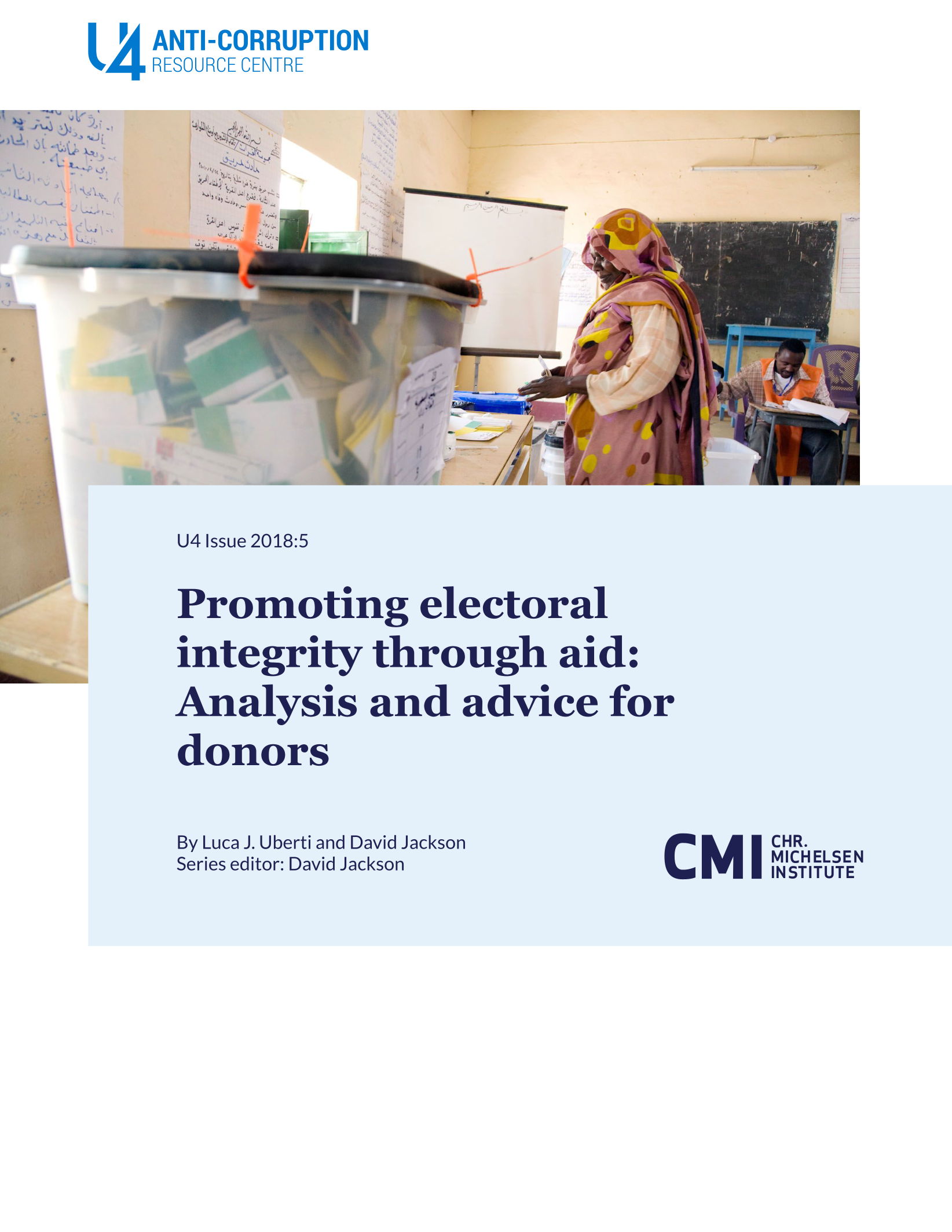Main points
- Donor-funded electoral assistance is found to improve electoral integrity – but the gains on average are rather small and short-lived. To improve aid effectiveness, donors should consider targeting electoral assistance programmes to low-income societies and to societies that do not currently benefit from election support programmes. Decisions about aid allocation, however, should also be based on a thorough consideration of context-specific factors that may hinder the effectiveness of election-aid support.
- On average, only about 32% of the integrity levels achieved in a given electoral contest are automatically carried over to the next contest. As gains in integrity are not very “sticky,” practitioners should explore ways to increase the sustainability of investments. In particular, when making decisions about electoral aid, they should pay close attention to the informal power dynamics and relations that can undermine the sustainability of donor-led electoral reforms. This can be done by structuring traditional political economy analysis (and other risk assessment tools) more consistently around the notion of informal norms, institutions, and the overall distribution of power.
- On average, certain types of electoral malpractice (e.g., ballot stuffing, flawed vote-counting, or other technical irregularities taking place on polling day) are found to be less resistant to the effects of election-support aid. Practitioners should undertake a comprehensive analysis of which kind of corrupt practices may be least impervious to reform within a given setting. Targeting the more amenable forms of misconduct will improve the cost-effectiveness of aid spending. At the same time, donors should consider imaginative approaches to address the most stubborn forms of misconduct (e.g., electoral violence, boycotts, voter registry fraud, vote buying, and other non-technical irregularities taking place in the run-up to the poll).


